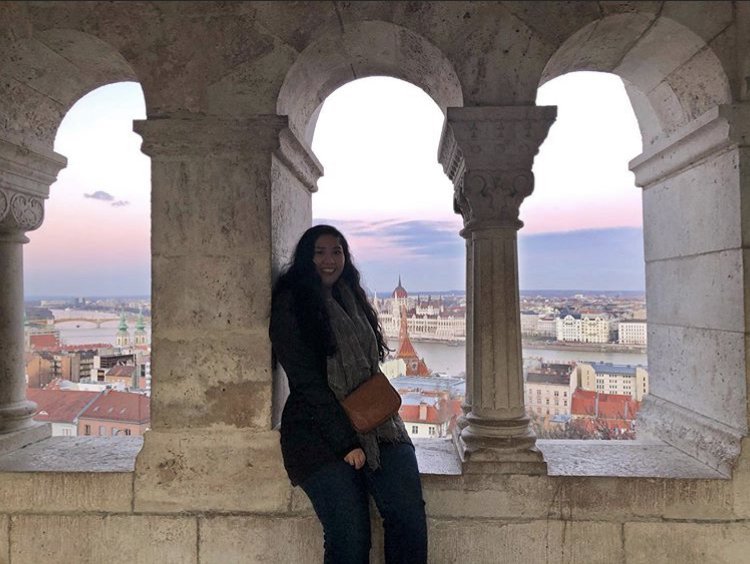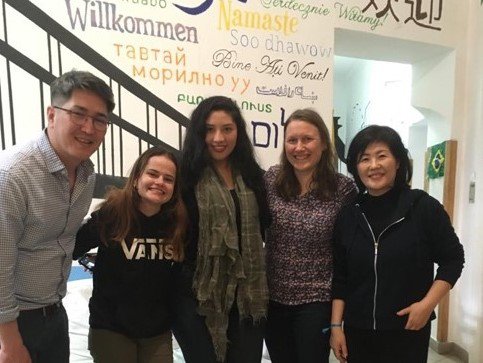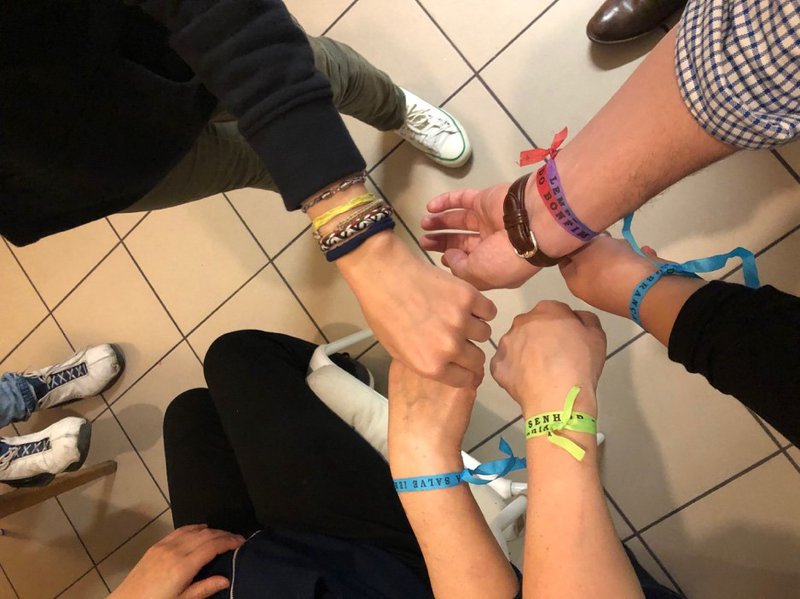Nancy Rosas served as a Student Intern with Kalunba Non-Profit, the implementing partner of RCH in the ministry among Refugees. Nancy spent 3 months in Budapest, helped out in administration and community building as well as in tutoring children. As she is majoring in Government and International Politics at George Mason University she gained relevant hands-on experience on how Hungarian government handles refugees and migrants.

How do I describe Kalunba? Home. Safe. Family. It deserves more credit than just being a non-profit organization. I wasn't just an intern who filed paperwork and did secretary job, I’ve connected with the clients that came and I was welcomed with open arms with the inner connected staff, who treated me as their own. Kalunba became my second home. They help me settle in the city better and even tried to teach me, Magyar, even though I was really bad at it. At Kalunba there wasn’t one specific project I was working on; I did a little bit of everything from computer work to attending events to helping take care of kids that came to visit the center.

Nancy "in the middle of Kalunba"
Working in the roam of refugee affair, it opened my eyes and brought me an insight into how this issue is dealt with in Hungary. Since I’m majoring in Government and International Politics, this internship was the most fitting for me, apart from learning in class, how the Hungarian government handles refugee affairs and its history, my internship gave me an on-hands approach by interacting with the refugees and migrants themselves.
One of the assignments that I worked on was interviewing and transcribing surveys into English. The surveys were given to the clientele of Kalunba, based on how their living conditions were at the time and how comfortable they felt in their neighborhood. Overall it was half-half. Most of them felt safe and felt they could raise their families there and some of them had to deal with rudeness or racism from their neighbors.
What I loved about coming to Kalunba were the one-on-one connections that I made with families that came to the center. It made me connected, just by listening to them made them feel more at home and comfortable. Hearing the families' experiences and their journey to Kalunba was an experience on its own. I even got to share my experience as an immigrant in the U.S.
As I look back, I've realized, I take for granted the life my family has provided even the resources I have readily available because I now know that it's difficult for refugees and migrants to have those same types of support systems in Hungary.

My favorite outside experience was attending The Justice for Sinti and Roma event. The objective of the event was to encourage churches across Europe to address the social and political challenges together, and to provide social support for the ethnic minority groups. Thanks to Kalunba I made everlasting friendships. Due to the pandemic, my time was cut short but I’m still in touch with my co-workers and even friends from the Sinti and Roma event.
At the end of the day what I gained out of this experience was, we are all human beings and no matter where you come from or how you identify yourself or the color of your skin, we all as a whole, must respect and listen to each other, I believe this is how you learn and grow as a community. The encouragement and aid that Kalunba provides must be acknowledged by a greater source, so we can have more safe havens for refugees and migrants, who are trying to better their lives, feel safe and anticipate a greater future for themselves and their families.
Refugee Ministry of RCH
Get an overview of what RCH in cooperation with Kalunba has been doing for and among Refugees in the last years. Strategy, statements, reports, reflections and more.